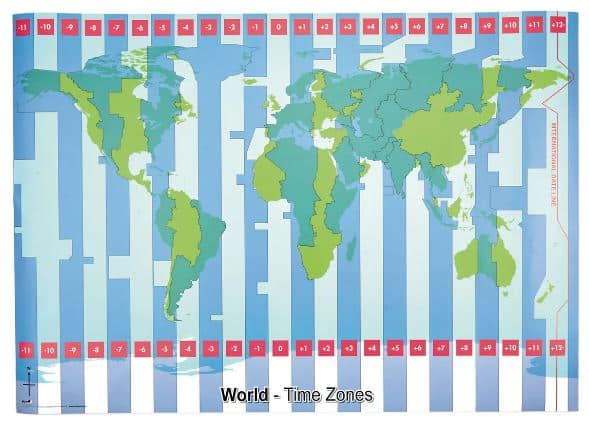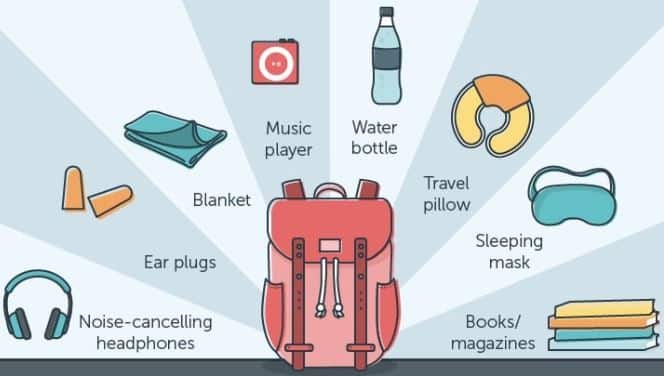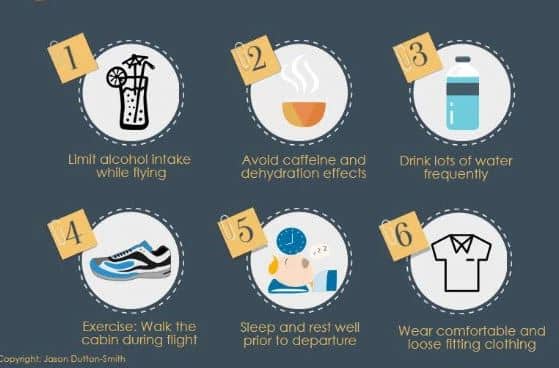Tips for Conquering Jet Lag That Really Work!
Will I get jet lag? What time zone am I going to? How can I best prepare for a long flight? How can I get smarter about conquering jet lag? Questions like how to reduce jet lag are not top of our list when planning an exciting long-haul trip.
Instead, we’re thinking about the exciting activities we are going to do, our sightseeing ‘must sees’, hotels and transportation etc.
If you’re off somewhere only a few hours from home, then the odd hour or two outside your time zone is easy to cope with. However, if you have booked a longer trip, how do you cope with jet lag?
A flight in economy from London to New Zealand for 2 weeks of touring via Sydney put paid to any doubt. So read on and follow our TPOP top tips for conquering jet lag. We’ve flown millions of miles and know a thing or two about what works to deal with jet lag.
The Science behind JetLag
It’s interesting to read the science behind jet lag as it helps explain why it occurs. As we go through our daily lives, our bodies align themselves on a 24-hour cycle or body clock.

This clock knows when to perform specific functions like releasing hormones that help you sleep or increasing your body temperature to help you wake up at the start of your day.
When we travel long-haul, our body’s natural clock is disrupted because we move into a different time zone. It gets confused about what it should do when – it’s telling you, you now need to be awake instead of asleep or eating dinner instead of breakfast! It’s not easy!

The most common symptoms of jet lag include feeling tired, drowsy, lethargic or having an upset stomach. The good news of course is that these symptoms are only temporary and there are definite ways to ease these feelings. So let’s get into our tips for conquering jetlag!

Understanding Time Zones
It is important to understand a little about time zones when travelling long-haul. When I first worked in the travel industry, I was based in the ‘Round the World’ department so I very quickly had to understand this concept.
“Remember to advise on the International Date Line too,’ I was told. Well, this was something new to me but I quickly learnt that yes, there is an invisible line which roughly follows the 180° line of longitude, splitting the Pacific in two.

Fancy two birthdays in a row? Celebrate in Samoa (GMT +13).
Next morning, take the 30-mile flight to neighbouring American Samoa (GMT -11) and – 25 minutes later, having crossed the International Date Line – land on your birthday again.
Travel in the other direction if you want to skip Christmas. Read more about Amazing Time Zone Facts.
There are several apps nowadays you can download to guide you – a popular one is World Time Buddy. Another is Time Zone Map – give them a try.
Top Tips For Conquering Jet Lag
We’ve split our TPOP tips for conquering jet lag into three key areas:
- Before you leave
- On the plane
- Arrival and Return
Read Our Article 14 Day Travel Countdown to avoid stress before you start to travel anywhere. Being relaxed will also help you feel better when you arrive.
Tips Before You Leave
1. Select Flight Options to Reduce Jet Lag Impacts
If available, pick a flight that allows you to arrive in the early evening. This way, staying up until it’s time for bed in your new time zone isn’t as hard.
You’ll arrive, have a light meal, sleep well and be ready for your adventure.
2. Be Time Zone Aware – Anticipate the Change
Know what the time difference is before you get on the plane. Start thinking about it a couple of days before and adjust your sleep routine.
If you have followed our post on the 14-Day Travel Countdown, you will be on top of all the packing and have time to relax.
3. First Day Activities
When you’re thinking about your itinerary, plan an easy first day and not an action-packed adventure where you are rushing around.
4. Reduce Jet Lag By Packing Smartly
We have found that having a few small comforts to help you feel comfortable and rest makes a big difference on transcontinental flights.
- Quality Eyemasks (or try the latest Eyemask with headphones)
- Small Travel Pillows
- Noise Reducing Headphones
- Lip Balm, Eye Drops and Moisturiser
- Healthy Snacks
- Extra socks

Use our 10kg Allowance & No Fees Packing Tips to avoid having to drag around lots of suitcases when you’re tired.

Tips When On the Plane
5. Get Some Quality Rest
Try to sleep on the plane if you’re travelling eastwards and into a whole new day. Use your earplugs, headphones and eye masks to help reduce noise and light.
You may have a whole day to pass onboard. If you can grab the odd hour of sleep on the flight this will help your body recover. If you’re travelling west, you may land and still get through a good part of the day. Being able to catch a few hours of rest en route will help reduce jet lag later.
6. Drink Lots of Water
Flying dehydrates the body and dry air in the cabin doesn’t help. The science says that for a three-hour flight, you should be drinking around 1.5 litres of water.
While in-flight drink service is so appealing and it’s oh so easy over the hours to have consumed a couple of mini bottles of wine and several gin and tonics.

Research shows that drinking alcohol onboard won’t help you sleep and along with coffee, it can dehydrate you even further. So limit your alcohol and caffeine and instead drink lots of water! Maybe bring a decent bottle onboard as often airlines tend to underserve water on long flights.

Herbal tea is also a great option. After you’ve had a sleep and when closer to landing, if you have a full day ahead, go ahead and drink your coffee.

Reduce Jet Lag – Food & Exercise
7. Make Healthy Food Choices
Back in the 90’s, even in economy class, travellers were given inviting A5 menu cards and silver cutlery. It was a real treat and in fact, we still have a number of these little menu cards as souvenirs!
Today, however, airlines have had to look at ways to cut costs – food is one of these ways. So while they try their best, meals on board can be high in calories, salty and sugary. Not good for jetlag.
Bring your healthy snacks and stay hydrated with fresh fruit and vegetables. It also means you can eat when you want instead of having to wait for the trolley to come your way. A balanced meal once you arrive can help reduce some jet lag symptoms like poor sleep, fatigue, bloating, and an upset stomach.
8. Try Moving Around
Ok – this is not easy to do, at 30,000 feet, while on a flight, but a little exercise can help you sleep better. Try to stretch your legs whenever you can.
Stand up when it’s safe to do so. If you’re changing flights, take a stroll around the airport or stand instead of sitting at your departure gate. Try these Recommended Airline Exercises.
9. Wear Comfortable Clothes
Of course, we want to look good when we travel but you’ve got all holiday to look fabulous so make your travelling clothes loose and comfortable.
We also suggest layers as you can get quite warm or cold and you can remove or add as needed. This is when you might need those extra socks – there’s nothing worse than cold feet – you won’t sleep!
10. Time Zone Check & Adjustments
Another lesson we swear by to reduce jet lag is to set your watch to your destination time if this is technically possible on board.
This sounds odd but our minds switch to the new time zone better when they aren’t looking back at the home one all the time.
Tips For Conquering Jetlag at Your Destination
11. Try To Adapt patterns to Your New Time
When you arrive at your destination, try to forget your old time zone as quickly as possible. Your technology will likely update clocks automatically anyway. Airlines also now have high-tech interactive maps that allow you to see the time at your new destination.
You’ll be excited at arriving anyway so that’s always a good distraction. Eat, drink, and sleep now in your new time.
Avoid the urge to nap. Take a walk out and explore your new surroundings without going too far.
12. Get Some Natural Light
Getting outside into daylight or sunshine can wake up your body and reduce the release of melatonin hormones that make you sleepy.

Hopefully, you’re heading somewhere sunny and with areas to walk in. Perhaps check out a local market or park where lots are going on to keep the mind active.
13. Consider Taking A Melatonin Supplement
Even though you’re tired, it can be hard to force your body to sleep when you’re normally wide awake.
Your body naturally makes melatonin to trigger sleepiness, but it’s also available as a supplement. You may want to consider melatonin to help your body get or stay sleepy while jet-lagged. We’ve both taken this and it does help. Make sure you check with your doctor or health store if you are unsure.
Tips For When You’re Returning Home
On return, you’re doing everything in reverse although because you’re travelling in the opposite way, jet lag impacts may feel different. Follow our on-board tips though and they will help you adjust when you are back in your timezone.
It might be useful to time your return flight close to a weekend. If you travel back on a Thursday, take Friday off. You then have the weekend to adjust your routine and get back to your normal.

How long does conquering Jetlag take?
You’re likely to experience more extreme jet lag symptoms if you’ve travelled across several time zones. The rule of thumb is that for each time zone you cross, it’ll take a day to adjust. Therefore, if you change seven time zones, you’ll likely experience jet lag symptoms for 7 days.
Be kind to yourself – the direction of travel will make a difference – so give your body the time it needs to adjust. Book an extra day’s leave on returning to ease you back in. Take a look at our image below to guide you.

Get Ready!
So we’ll leave you with a final reflection on this subject. When you look back on your holiday, will you remember how bad the jet lag was?
No! If you’re like us, you’ll remember the amazing time you’ve just experienced not jetlag! And now you’ve got some of the best tips for conquering Jet Lag, your next trip will be a breeze!



Thanks Leyla, we know you travel a lot too so if there’s anything else you’ve found helpful, please share!
great tips, thank you!